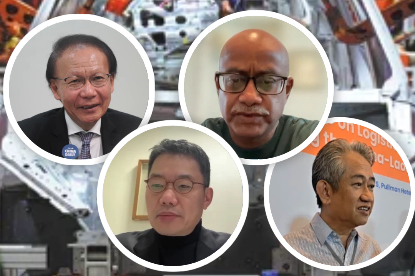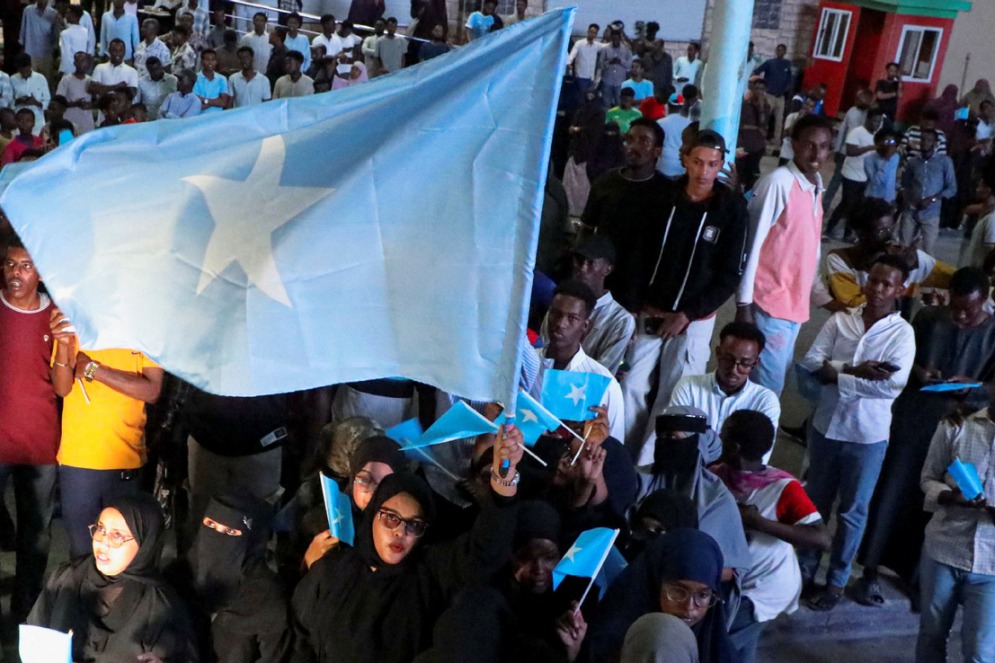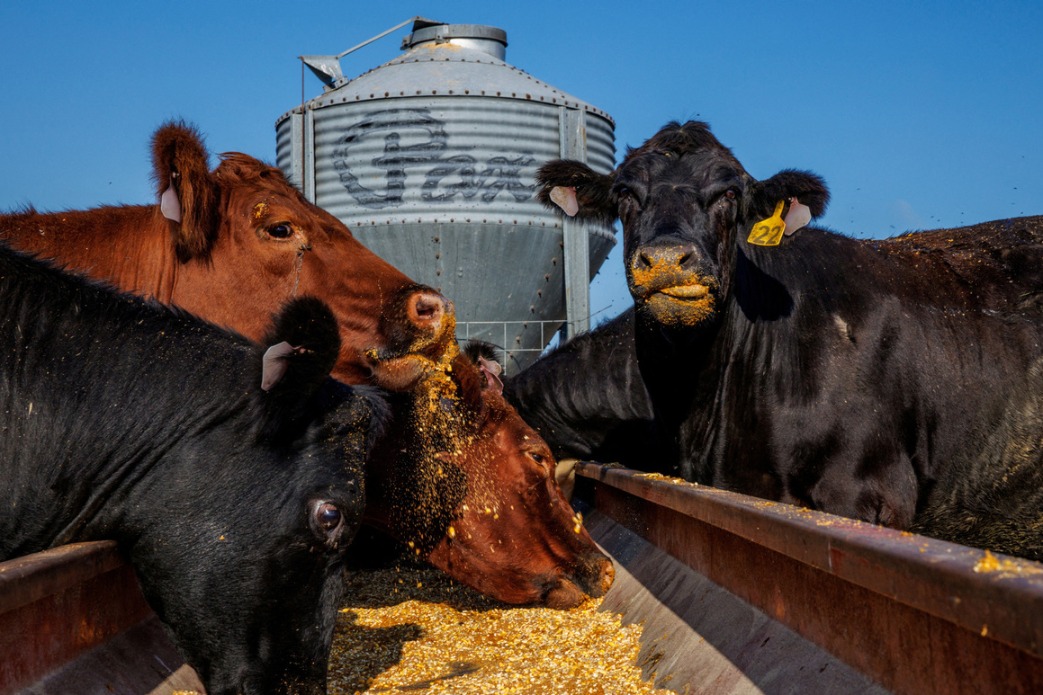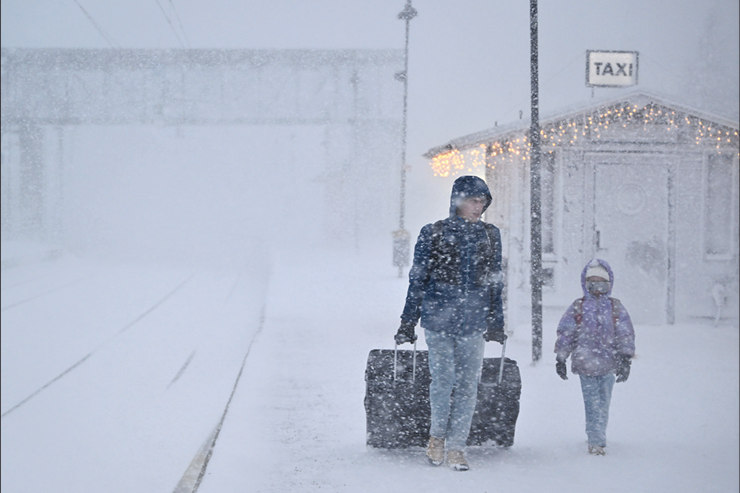US protests fuel Australia's own 'Black Lives Matter' movement

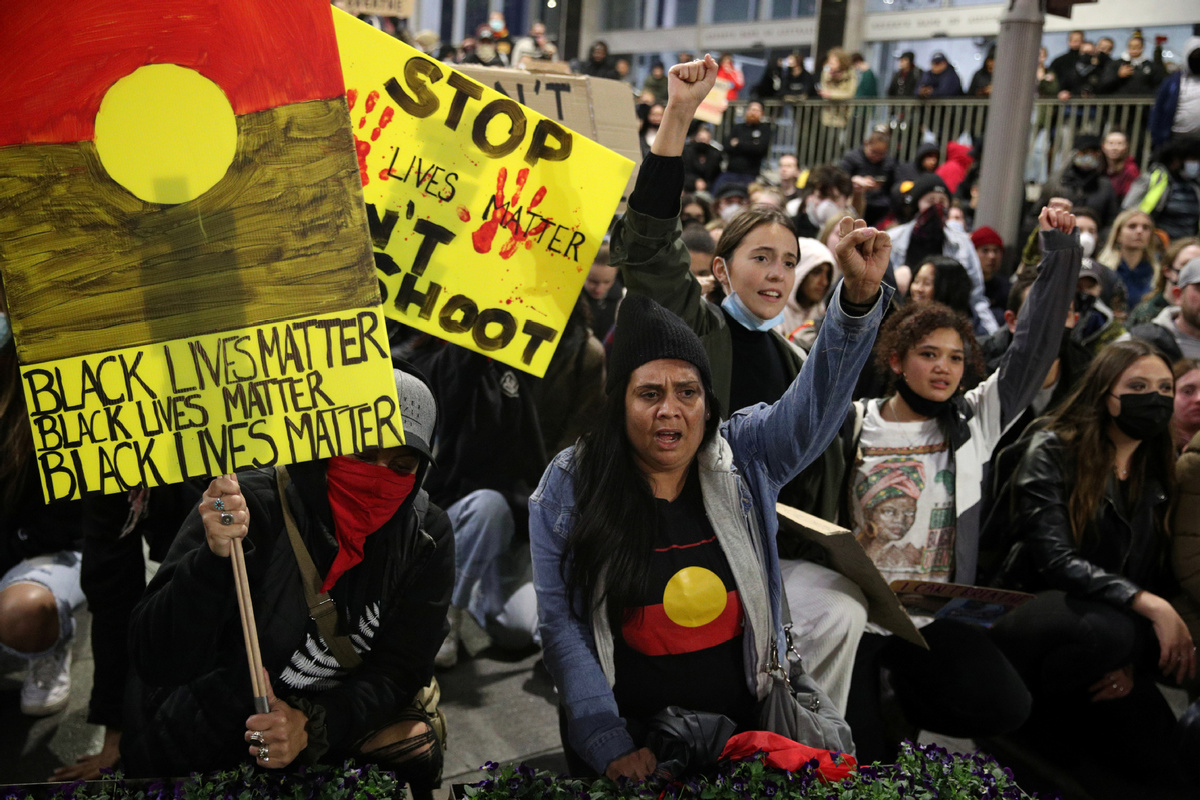
SYDNEY - As thousands of Australians marched in solidarity with US protesters this week, highly visible were the red, yellow and black of the Australian Aboriginal flags, proudly displayed by many in the crowd.
Since the first contact with the British 250 years ago, Australia's First Nations Peoples (The term Aboriginal and Torres Strait Islander people is preferred by many as First Nations of Australia) have endured devastating violence and oppression, from mass killings at the hands of early settlers, through the Stolen Generations of last century, to more recent deaths while in the custody of police.
The treatment of Indigenous people is a wound which despite many flawed attempts at "reconciliation," Australia has never been able to heal, and has now been agitated by occurrences in the United States.
One of those who attended a Sydney protest this week, university student Eloise Walsh told Xinhua that the events in America were a catalyst to refocus on Australia's own issues.
"I don't agree 100 percent with what's happening, the looting and everything, but all the peaceful protests that you can see is so heartwarming," Walsh said.
"And so (we're here) to spread awareness as well of what has happened in Australia, because I think we can relate."
Despite making up only 3.3 percent of the Australian population, First Nations Peoples represent roughly 28 percent of the prison population.
As a group, they also have a lower life expectancy, poorer educational outcomes, higher rates of psychological distress and suicide, endemic levels of substance abuse and a far higher likelihood of having dealings with the justice system.
During the week, video went viral of an indigenous teenager being knocked to the ground by police in the State of New South Wales (NSW), prompting the boy's family to consider suing NSW police, and the officer involved to be placed on restricted duties.
Police launched an investigation into the incident, which appeared to involve the boy threatening the officer before being violently restrained. However, NSW Police Region Commander, Assistant Commissioner Mick Willing downplayed links between the video and protests against police brutality in the United States.
"We're not the United States of America," Willing said.
While he acknowledged that the footage was concerning, Willing warned against it being used to inflame the situation in Australia or "turn it into something it's not."
However, others pointed out that the arrest is far from an isolated incident, with a long history of violent interactions between police and Aboriginal Australians, on top of a staggeringly high record of deaths occurring while in police custody.
Since 1991, 432 First Nations Peoples have died while in the custody of police, according to data from the Guardian. One of them, 26-year-old Dunghutti man, David Dungay who passed away in 2015, repeatedly uttered the words "I can't breathe" before he died while being restrained by five guards.
It is the same phrase spoken by George Floyd during the fatal incident which sparked the current US protests, a fact which Dungay's family has found difficult to bear.
Those words, along with "Black Lives Matter" are likely to be heard loud and clear this weekend as protests continue across major Australian cities, with thousands of both indigenous and non-indigenous people, expected to call for change.
In 2017, 250 Indigenous representatives convened at the First Nations National Constitutional Convention to deliver the Uluru Statement from the Heart -- a document intended to guide "real, lasting and practical change," to address the challenges faced by First Australians.
It calls for a constitutionally enshrined representation of First Nations people in parliament, giving them a voice to decide on the issues which disproportionately affect them.
"Proportionally, we are the most incarcerated people on the planet," the statement says. "We are not an innately criminal people. Our children are aliened from their families at unprecedented rates. This cannot be because we have no love for them. And our youth languish in detention in obscene numbers. They should be our hope for the future."
"We seek constitutional reforms to empower our people and take a rightful place in our own country. When we have power over our destiny our children will flourish. They will walk in two worlds and their culture will be a gift to their country."

















